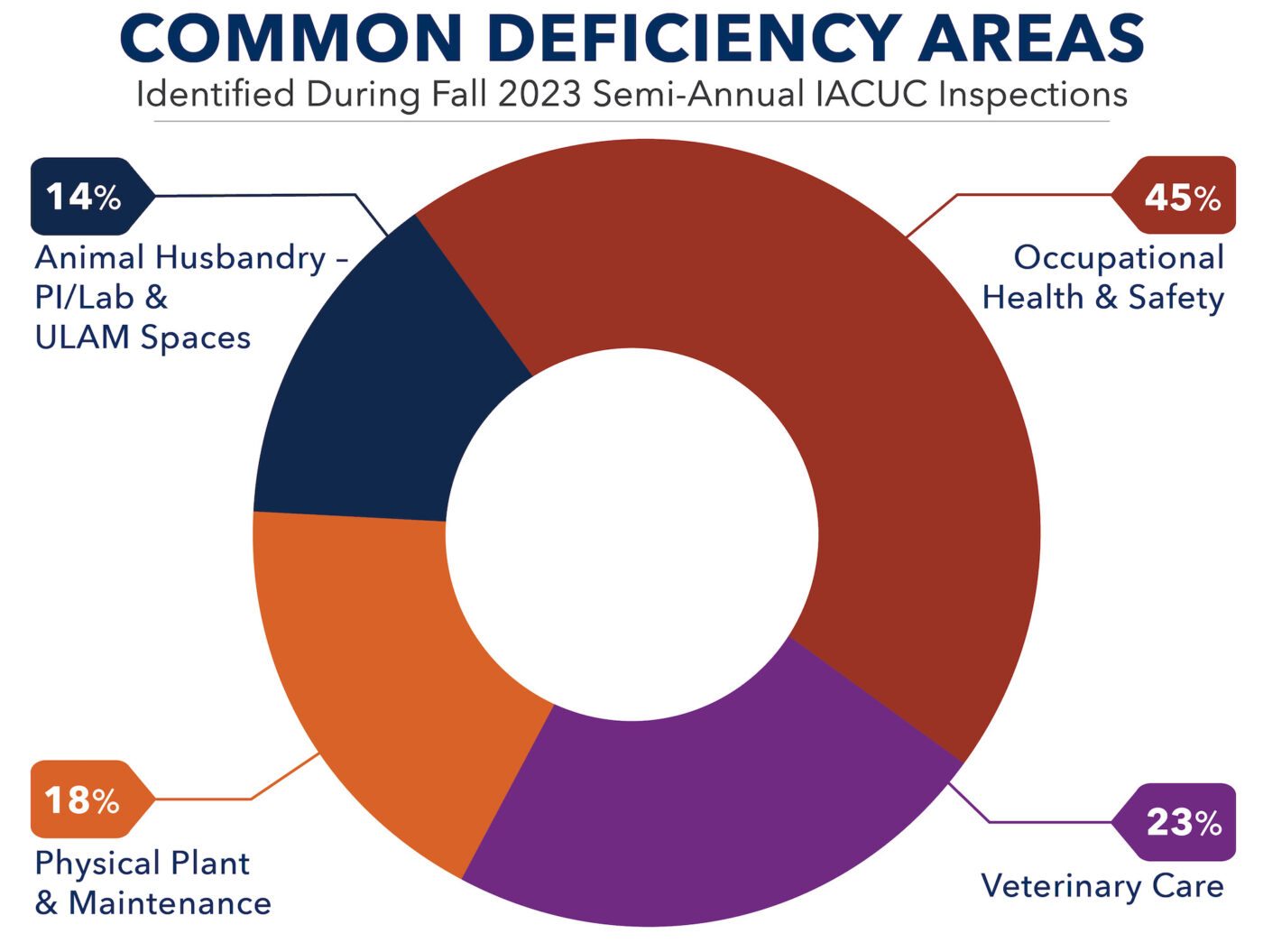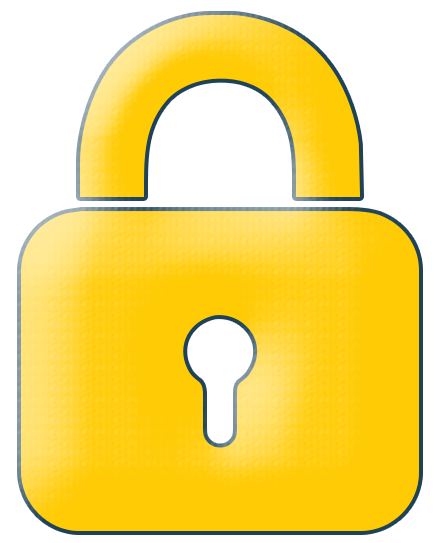
The Institutional Animal Care & Use Committee (IACUC) completed its latest round of semi-annual facility inspections in mid-September.
These inspections are one of the most important tools we have for routinely assessing programmatic strengths and identifying areas for individual and collective improvement(s) in service to the animals entrusted to our care.
Through this lens of shared responsibility for safeguarding animal welfare and ensuring continued programmatic compliance, please review and discuss the findings, suggestions for improvement, and resources below with all members of your staff – including any students involved with research in your lab – in advance of Winter 2024 semi-annual facility inspections.
The Winter 2024 round of semi-annual IACUC facility inspections is scheduled for February and March.
Inspections will run through Thursday, March 21, 2024, and include any animal rooms, surgical suite support spaces, and areas where procedures are conducted with animals.
Inspection schedules and reminders will be sent to each PI/Study Team member based on the buildings/rooms on animal use protocol(s) in eRAM. Inspection notices and reminders are automatically sent by eRAM at 2-week and 4-day intervals leading up to the assigned inspection date.
Common Deficiency Areas** Identified During Fall 2023 Inspections:
Examples:
- Compressed gas cylinders not properly stored
- Eyewash stations not properly maintained
- Unsanitizable materials (e.g., cloth chairs and untreated wood) were found
Suggestions for Improvement:
- Download and review EHS Compressed Gas Guidelines and SOPs, which outline that storage of compressed gas cylinders requires sturdy chains or straps secured to a wall or cabinet, and/or use of a cylinder stand
- Eyewash stations (flushed at least monthly) and safety showers (visually inspected at least weekly) should be monitored at required intervals, with testing appropriately documented
- Surfaces, chairs, and equipment must be sanitizable (i.e., no porous surfaces such as cloth or unsealed wood)
Examples:
- Materials and substances, including chemical hazards, not appropriately labeled
- Anesthetic machines or anesthetic canisters were not properly maintained
- Post-operative monitoring sheets/records were incomplete
Suggestions for Improvement:
- Ensure all materials/substances are labeled and dated, if necessary, upon arrival/order (review the Policy on the Use, Storage, and Expiration of Substances, Agents, and Medical Materials Used in Animals for more information)
- Review the Policy on Maintaining Anesthetic Machines and Vaporizers, which states that anesthetic machines/vaporizers must be manually assessed at yearly intervals to ensure high-quality anesthesia for research animals and a safe working environment for personnel
- Utilize ULAM services for quarterly anesthetic machine servicing and certification
- Download and print post-operative record templates
- Download the Quick Reference Sheet: Avoiding Common Mistakes When Completing Surgical Records for Mice and Rats

Examples
- Room locks required maintenance
- Walls, floors, or furniture required repair
- Water leakage was noted
- Labs and storage areas found to be cluttered
Suggestions for Improvement:
- Work with your ULAM Husbandry Supervisor
 and/or Plant Operations staff to address any service or facility repairs in a timely manner
and/or Plant Operations staff to address any service or facility repairs in a timely manner - Select one or two lab members to regularly review, and be responsible for, housekeeping items/tasks
Examples:
- Sanitation practices for all lab equipment that comes into direct contact with animals were not established and/or equipment was soiled
- Expired and/or unlabeled animal feed was found
Suggestions for Improvement:
- Download the Quick Reference Sheet: Equipment Cleaning & Sanitization Guidance to familiarize yourself with the procedures and expectations for equipment sanitization and testing
- Mill and expiration dates for animal feed should be routinely checked to ensure that feed is in-date. Any secondary storage containers should also be clearly labeled with content information and expiration/mill date
- Contact your facility’s ULAM Husbandry Supervisor
 with questions or concerns
with questions or concerns
**Percentages above represent the number of overall deficient findings in a given area (e.g., Physical Plant & Maintenance – 18% denotes that, of the total findings identified during Fall 2023 semi-annual facility inspections, 18% were related to physical plant and maintenance).
Questions?
Questions or concerns about semi-annual IACUC facility inspections, or any of the items outlined above, should be directed to the Animal Care & Use Office at [email protected] or (734) 763-8028.
![]() Links marked with a lock icon can only be accessed using valid U-M login credentials.
Links marked with a lock icon can only be accessed using valid U-M login credentials.